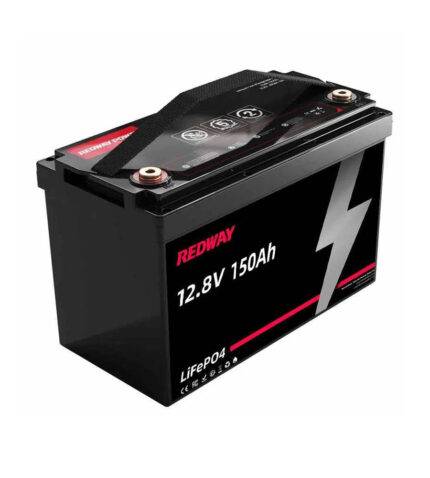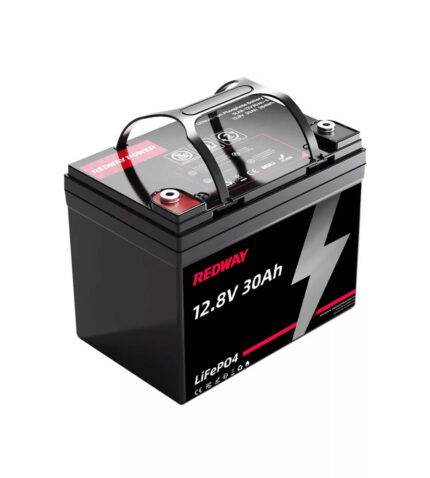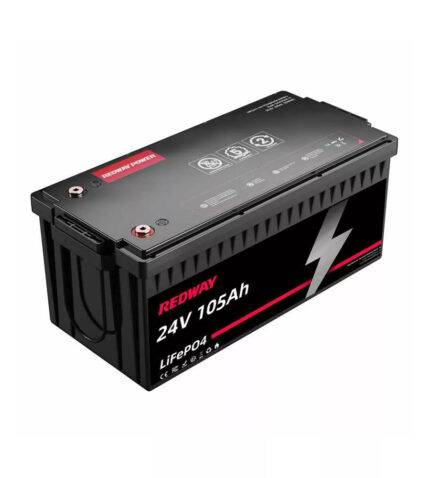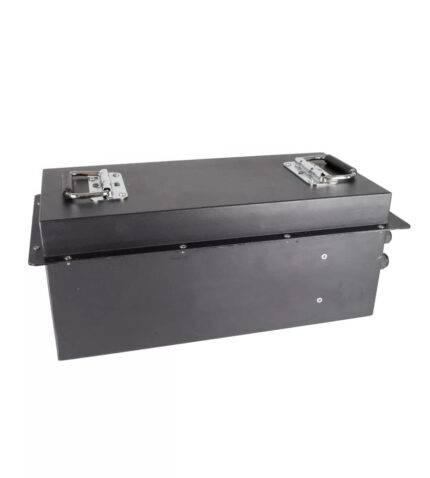- Forklift Lithium Battery
-
48V
- 48V 210Ah
- 48V 300Ah
- 48V 420Ah (949 x 349 x 569 mm)
- 48V 420Ah (950 x 421 x 450 mm)
- 48V 456Ah
- 48V 460Ah (830 x 630 x 590 mm)
- 48V 460Ah (950 x 421 x 450 mm)
- 48V 460Ah (800 x 630 x 600 mm)
- 48V 460Ah (820 x 660 x 470 mm)
- 48V 500Ah
- 48V 560Ah (810 x 630 x 600 mm)
- 48V 560Ah (950 x 592 x 450 mm)
- 48V 600Ah
- 48V 630Ah
-
48V
- Lithium Golf Cart Battery
- 12V Lithium Battery
12V 150Ah Lithium RV Battery
Bluetooth App | BCI Group 31
LiFePO4 Lithium
Discharge Temperature -20°C ~ 65°C
Fast Charger 14.6V 50A
Solar MPPT Charging - 24V Lithium Battery
- 36V Lithium Battery
- 48V Lithium Battery
-
48V LiFePO4 Battery
- 48V 50Ah
- 48V 50Ah (for Golf Carts)
- 48V 60Ah (8D)
- 48V 100Ah (8D)
- 48V 100Ah
- 48V 100Ah (Discharge 100A for Golf Carts)
- 48V 100Ah (Discharge 150A for Golf Carts)
- 48V 100Ah (Discharge 200A for Golf Carts)
- 48V 150Ah (for Golf Carts)
- 48V 160Ah (Discharge 100A for Golf Carts)
- 48V 160Ah (Discharge 160A for Golf Carts)
-
48V LiFePO4 Battery
- 60V Lithium Battery
-
60V LiFePO4 Battery
- 60V 20Ah
- 60V 30Ah
- 60V 50Ah
- 60V 50Ah (Small Size / Side Terminal)
- 60V 100Ah (for Electric Motocycle, Electric Scooter, LSV, AGV)
- 60V 100Ah (for Forklift, AGV, Electric Scooter, Sweeper)
- 60V 150Ah (E-Motocycle / E-Scooter / E-Tricycle / Tour LSV)
- 60V 200Ah (for Forklift, AGV, Electric Scooter, Sweeper)
-
60V LiFePO4 Battery
- 72V~96V Lithium Battery
- Rack-mounted Lithium Battery
- E-Bike Battery
- All-in-One Home-ESS
- Wall-mount Battery ESS
-
Home-ESS Lithium Battery PowerWall
- 24V 100Ah 2.4kWh PW24100-S PowerWall
- 48V 50Ah 2.4kWh PW4850-S PowerWall
- 48V 50Ah 2.56kWh PW5150-S PowerWall
- 48V 100Ah 5.12kWh PW51100-F PowerWall (IP65)
- 48V 100Ah 5.12kWh PW51100-S PowerWall
- 48V 100Ah 5.12kWh PW51100-H PowerWall
- 48V 200Ah 10kWh PW51200-H PowerWall
- 48V 300Ah 15kWh PW51300-H PowerWall
PowerWall 51.2V 100Ah LiFePO4 Lithium Battery
Highly popular in Asia and Eastern Europe.
CE Certification | Home-ESS -
Home-ESS Lithium Battery PowerWall
- Portable Power Stations
72V 20Ah Lithium Battery
• Applications: Electric Scooter / Electric Rickshaw / Electric Trishaw / Electric Tricycle / Electric Trike / Electric Drive / Electric Cabin Scooter / Electric Motorcycle / E-Bike / eBike / etc.
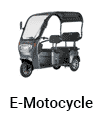


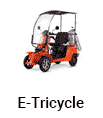

• Cell: Lithium-ion NCM (21700)
• MOQ: 3
• Sample: 1
• Delivery: 20 Days
• Customizable / OEM / ODM: Yes
• Factory: Redway, Dongguan, Guangdong, China
• Delivery Terms: FOB, EXW, CIF
• Payment: T/T, L/C, PayPal
• Sea / Air / Land Shipment: 10FT, 20FT, 40FT
Description
This battery is the 72V 20Ah Lithium Battery, manufactured by Redway Power, a prominent factory in China known for its high-quality lithium-ion batteries. Designed for a variety of electric vehicles, including scooters, rickshaws, and tricycles, this battery offers reliable performance and efficiency for all your energy needs.
Key Features
- High Capacity: With a nominal capacity of 20Ah and an energy output of 1.44 kWh, this battery provides ample power for extended use in demanding applications.
- Durable Design: Featuring an IP65 rating, this battery is protected against dust and water, making it ideal for outdoor use in various weather conditions.
- Long Cycle Life: Capable of over 2,000 cycles at 80% depth of discharge (DOD), this battery minimizes the need for frequent replacements, ensuring long-term reliability.
- Smart Battery Management System (BMS): The advanced BMS protects against overcharging, overheating, and short circuits, ensuring safe operation during use.
- Customizable Options: Redway Power offers OEM and ODM services, allowing for tailored solutions to meet specific customer requirements.
Applications
The 72V 20Ah Lithium Battery is versatile and suitable for a wide range of applications, including:
- Electric scooters
- Electric rickshaws
- Electric tricycles
- Electric motorcycles
- E-bikes
- Electric cabin scooters
- Low-speed vehicles (LSVs)
With a maximum charging voltage of 84V and a discharge cut-off voltage of 54V, this battery is optimized for various operational needs. It operates effectively across a temperature range from -10°C to 50°C, making it adaptable to different environments.The compact design allows for easy installation while ensuring that your equipment operates efficiently throughout the day. Additionally, it supports fast charging capabilities, enabling quicker turnaround times between uses.
As a trusted manufacturer, Redway Power is committed to delivering high-quality lithium-ion batteries that enhance productivity and sustainability in your operations. The 72V 20Ah Lithium Battery not only reduces downtime but also contributes to lower operational costs due to its efficiency and long lifespan.Investing in this battery means choosing a reliable power solution that meets the demands of modern electric vehicles while supporting your business’s growth and sustainability goals. Choose Redway Power for your lithium battery needs and experience unparalleled performance and service.
Specifications
| Specifications | |
|---|---|
| Lithium-ion Cell Type | LiFePO4 (LFP) |
| Nominal Voltage | 72V |
| Nominal Capacity | 20Ah |
| Nominal Energy | 1.44kWh |
| Max Charging Voltage | 84V |
| Discharge Cut-off Voltage | 54V |
| Max Continues Charging Current | 20A |
| Max Continues Discharge Current | 20A |
| Peak Discharge Current | 60A (5s) |
| Dimensions [L x W x H] | 180 x 154 x 300 mm |
| Weight | 9.8kg |
| Terminal | ND2+4 |
| IP Rating | IP65 |
| Cycle Life | >2000 cycles (80% DOD) |
| Self-discharge | 2% (per month) |
| Charge Temperature | 0°C ~ 50°C |
| Discharge Temperature | -10°C ~ 50°C |
| LCD Display | Yes |
| Optional Functions | Self-heating / Bluetooth / APP / WiFi / 4G / GPS / RS485 / RS232 / CAN-bus / Active Balance / Anti-theft / Heatsink / etc. |
| BMS Protection | Smart BMS: Over current, Over charge, Over discharge, Overload, Over Voltage, Low voltage, Over temperature, Overheat, etc. |
| Battery Shell | Metal (Black / White / Gray / Other) |
| Design Life | 10 Years |
| Silkscreen / Label / Laser Logo | Yes |
| User Manual | Yes |
| OEM / ODM / Customization | Yes |
| Certifications | UL1642 / CE / UN38.3 / MSDS |
Applications and FAQs
What is the difference between a 60V and a 72V battery?
The main difference between a 60V and a 72V battery is their voltage output. A 72V battery typically provides more power and better performance for high-demand applications, while a 60V battery is often used in standard electric vehicles and systems.
What is the full charge of a 72V lithium battery?
A fully charged 72V lithium battery usually reaches about 84V, which corresponds to the maximum voltage of its individual cells. This full charge ensures optimal performance and longevity of the battery.
What happens if you charge a lithium battery with a normal charger?
Charging a lithium battery with a normal charger can lead to overcharging, overheating, or damage. Normal chargers do not provide the specific charging profile required for lithium batteries, potentially shortening their lifespan or causing safety hazards.
Can I charge a 72V battery with a 60V charger?
No, you cannot charge a 72V battery with a 60V charger. The charger will not provide sufficient voltage to fully charge the battery, which can lead to incomplete charging and reduced performance.
What is the voltage of a 72V battery when fully charged?
A fully charged 72V lithium battery typically has a voltage of about 84V. This maximum voltage is necessary for optimal performance in electric vehicles and other applications.
What is the range of a 72V 20Ah battery?
The range of a 72V 20Ah battery depends on the vehicle's efficiency but can typically provide around 30 to 50 miles on a full charge. Factors like terrain, rider weight, and speed will affect actual range.
Is it okay to leave a lithium-ion battery on the charger overnight?
Yes, it is generally safe to leave a lithium-ion battery on the charger overnight. Most modern chargers have built-in protections that prevent overcharging. However, it’s best to use chargers specifically designed for lithium batteries.
What is the most expensive part of a lithium-ion battery?
The most expensive part of a lithium-ion battery is typically the battery cells themselves, which contain valuable materials like lithium, cobalt, and nickel. These materials contribute significantly to the overall cost of manufacturing lithium-ion batteries.

















